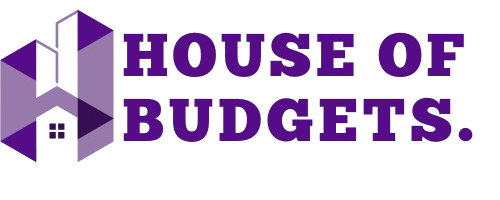Top 6 Savings Books to Improve Your Finances in 2024
Table of Contents
Managing your money in today’s world can feel overwhelming. But, with the right books, you can learn how to grow your wealth and achieve financial stability. These top savings books share expert advice, practical tips, and proven methods to help you manage your finances better.
These books are great whether you’re starting your financial journey or looking to improve your money habits. They cover everything from budgeting and paying off debt to investing and planning for retirement. The knowledge you gain can significantly improve your ability to increase your wealth and secure a better financial future.
Understanding the Impact of Financial Literature on Wealth Building
Reading books on saving money and personal finance can change your life. They offer advice on budgeting, investing, and managing debt. The right books can help you manage your money better and reach financial freedom.
Why Reading Financial Books Matters
Financial books give you insights and strategies. They help you understand personal finance better. By reading them, you’ll learn to make smart money choices, leading to better financial results. Saving booklets and books about saving money are great for starting a savings habit.
How Books Shape Money Management Habits
Financial books teach you important money habits. As you apply their lessons, you’ll start to manage your money better. This includes budgeting, paying off debt, and saving more. These changes can last a lifetime.
The Science Behind Financial Learning
Studies show that reading financial books can improve your brain’s ability to make money decisions. By exploring different books about saving money, you’ll learn more and challenge your ideas. This leads to a deeper understanding of personal finance.
Classic Personal Finance Books That Stand the Test of Time
Some books have become classics in personal finance. They offer insights and strategies that help people save money and build wealth. These books have been around for years, helping many improve their financial lives.
“The Richest Man in Babylon” by George S. Clason is a timeless classic. Published in 1926, it teaches financial management through ancient Babylon parables. It covers saving, compound interest, and more, providing a lasting financial blueprint.
“Your Money or Your Life” by Vicki Robin and Joe Dominguez is another classic. Published in 1992, it encourages readers to rethink their money values. It teaches to spend wisely and find happiness beyond material things.
| Book Title | Author | Year Published | Key Takeaways |
|---|---|---|---|
| The Richest Man in Babylon | George S. Clason | 1926 | Principles of financial management, the importance of saving, compound interest |
| Your Money or Your Life | Vicki Robin and Joe Dominguez | 1992 | Reexamining the relationship with money, aligning spending with values, finding fulfillment beyond material possessions |
| The Total Money Makeover | Dave Ramsey | 2003 | Debt-free living, budgeting, building wealth through saving and investing |
These books are just a few examples of classics in personal finance. They are great for anyone starting their financial journey or looking to improve their money skills. These timeless works are full of knowledge and inspiration to help you reach your financial goals.
Must-Read Savings Books for Beginners
Starting your financial journey can feel overwhelming. But the right savings books can change everything. Whether you’re new to money management or saving, this list will guide you to financial success.
Books for Basic Money Management
Learning personal finance is key. These books offer a clear path to start:
- The Total Money Makeover by Dave Ramsey – A classic guide that teaches proven debt-reduction strategies and the importance of budgeting.
- I Will Teach You to Be Rich by Ramit Sethi – Offers a step-by-step framework for building wealth, from managing your spending to optimizing your investments.
- The Simple Dollar by Trent Hamm – Covers essential money management skills, from paying off debt to building an emergency fund.
Fundamental Concepts in Saving
Learning to save is vital for financial stability. These books cover the basics of saving and help you make smart choices:
- The Automatic Millionaire by David Bach – Explores the power of consistent, automated savings and the concept of “pay yourself first.”
- The Richest Man in Babylon by George S. Clason – A timeless classic that teaches essential savings and wealth-building lessons through parables.
- Your Money or Your Life by Vicki Robin and Joe Dominguez – Guides readers through a transformative approach to personal finance and the relationship between money and fulfillment.
Starting Your Financial Journey
These books offer a complete introduction to personal finance. They empower you to manage your savings book and money management strategies:
| Book | Author | Key Takeaways |
|---|---|---|
| The Financial Diet | Chelsea Fagan | Practical guidance on budgeting, debt management, and building financial resilience. |
| Get Good with Money | Tiffany Aliche | Holistic approach to personal finance, addressing mindset, goals, and actionable steps. |
| The Millennial Money Fix | Douglas A. Boneparth and Heather Boneparth | Tailored advice for millennials navigating the unique financial landscape of today. |
No matter your financial situation, these savings books will guide and inspire you. They’ll help you start your money management journey with confidence.
Dave Ramsey’s Guide to Financial Freedom
If you want to achieve financial stability and independence, Dave Ramsey’s program is for you. His book, “The Total Money Makeover,” offers a clear plan. It helps you get rid of debt, build wealth, and reach financial freedom.
Ramsey’s main strategy is the “Debt Snowball.” It tells you to pay off your smallest debts first. This builds momentum and helps you become debt-free. It’s a way to take back control of your finances and reduce financial stress.
Ramsey also stresses the need for budgeting and a spending plan that matches your goals. His 7 Baby Steps provide a simple plan. It includes saving for emergencies, retirement, and improving your money habits.
- Step 1: Save $1,000 for your starter emergency fund.
- Step 2: Pay off all debt using the debt snowball method.
- Step 3: Save 3-6 months’ expenses in a fully funded emergency fund.
- Step 4: Invest 15% of your household income for retirement.
- Step 5: Save for your children’s college.
- Step 6: Pay off your home early.
- Step 7: Build wealth and give.
By following Ramsey’s advice on financial discipline and living on less, you can change your money habits. The dave ramsey pdf total money makeover and his personal finance advice have helped millions. They’ve taken charge of their finances and secured their future.
“The only way to win with money is to live on less than you make, invest the difference, and avoid debt.”
– Dave Ramsey
Modern Approaches to Money Management in Literature
The digital age has changed how we handle money. Modern books now tackle these new challenges and chances. They look at new ways to save, how tech helps with money, and fresh ideas for wealth in today’s world.
Digital Age Money Management
Today, digital tools and online platforms have changed money management. Suze Orman in “The Ultimate Retirement Guide for 50+” talks about using tech. She shows how to use mobile apps, online budgeting, and digital banking to save and invest better.
Contemporary Saving Strategies
Books like Ramit Sethi’s “I Will Teach You to Be Rich” offer new ways to get rich. They focus on the mind side of saving. These books give tips to beat saving hurdles and build lasting money habits in our digital world.
Technology and Personal Finance
Technology and money have merged, bringing new solutions. “Broke Millennial Takes On Investing” by Erin Lowry looks at tech’s role in finance. It helps you understand and use digital tools to manage your money wisely.
FAQ
What are the benefits of reading savings books?
Reading savings books can boost your financial knowledge. They teach you how to manage money well and offer strategies for wealth building. These books give you expert advice to secure a solid financial future.
How do financial books shape money management habits?
Financial books can change how you handle money. They introduce new ideas, question your beliefs, and guide you in making smart financial choices. By learning from these books, you can improve your financial habits and build a better relationship with money.
What are some classic personal finance books that have stood the test of time?
Classics like “The Millionaire Next Door” by Thomas J. Stanley and William D. Danko, “Rich Dad Poor Dad” by Robert Kiyosaki, and “The Total Money Makeover” by Dave Ramsey are timeless. They offer valuable insights that have helped many improve their finances and build wealth.
What are the essential savings books for beginners?
For beginners, “The Richest Man in Babylon” by George S. Clason is a must-read. It teaches basic money management. “Your Money or Your Life” by Vicki Robin and Joe Dominguez helps you align spending with values. “The Money Book for the Young, Fabulous & Broke” by Suze Orman offers practical advice for starting your financial journey.
How can Dave Ramsey’s “The Total Money Makeover” help me achieve financial freedom?
“The Total Money Makeover” by Dave Ramsey is a detailed guide to getting out of debt and saving for emergencies. It uses the debt-snowball method and other strategies. The book stresses the need for discipline in budgeting, saving, and investing, helping you take charge of your finances.
What modern approaches to money management are discussed in recent financial literature?
Modern financial books focus on how technology affects personal finance. They cover digital tools, automation in saving and investing, and the link between finance and new technologies. These books offer fresh ways to grow wealth in today’s digital world.







